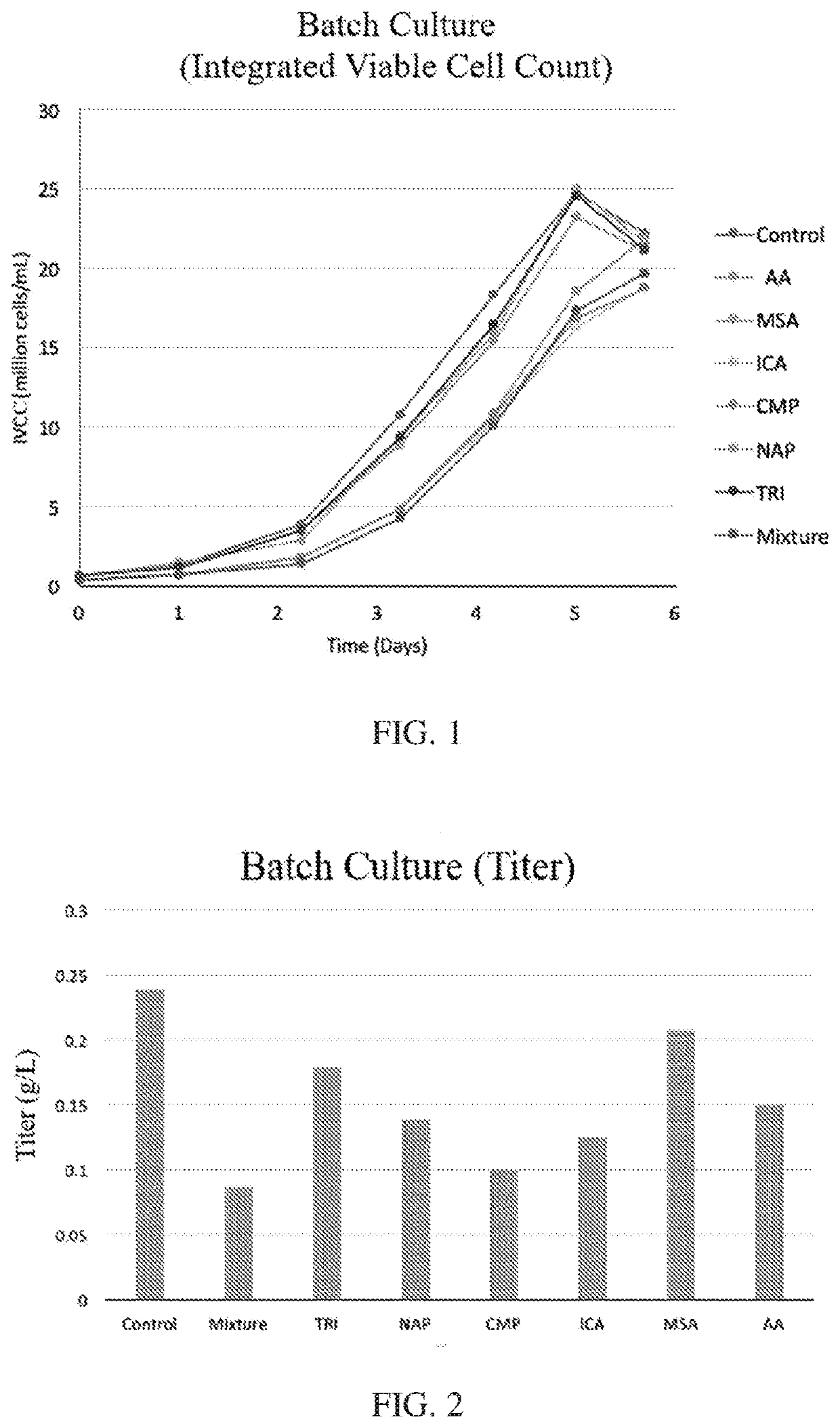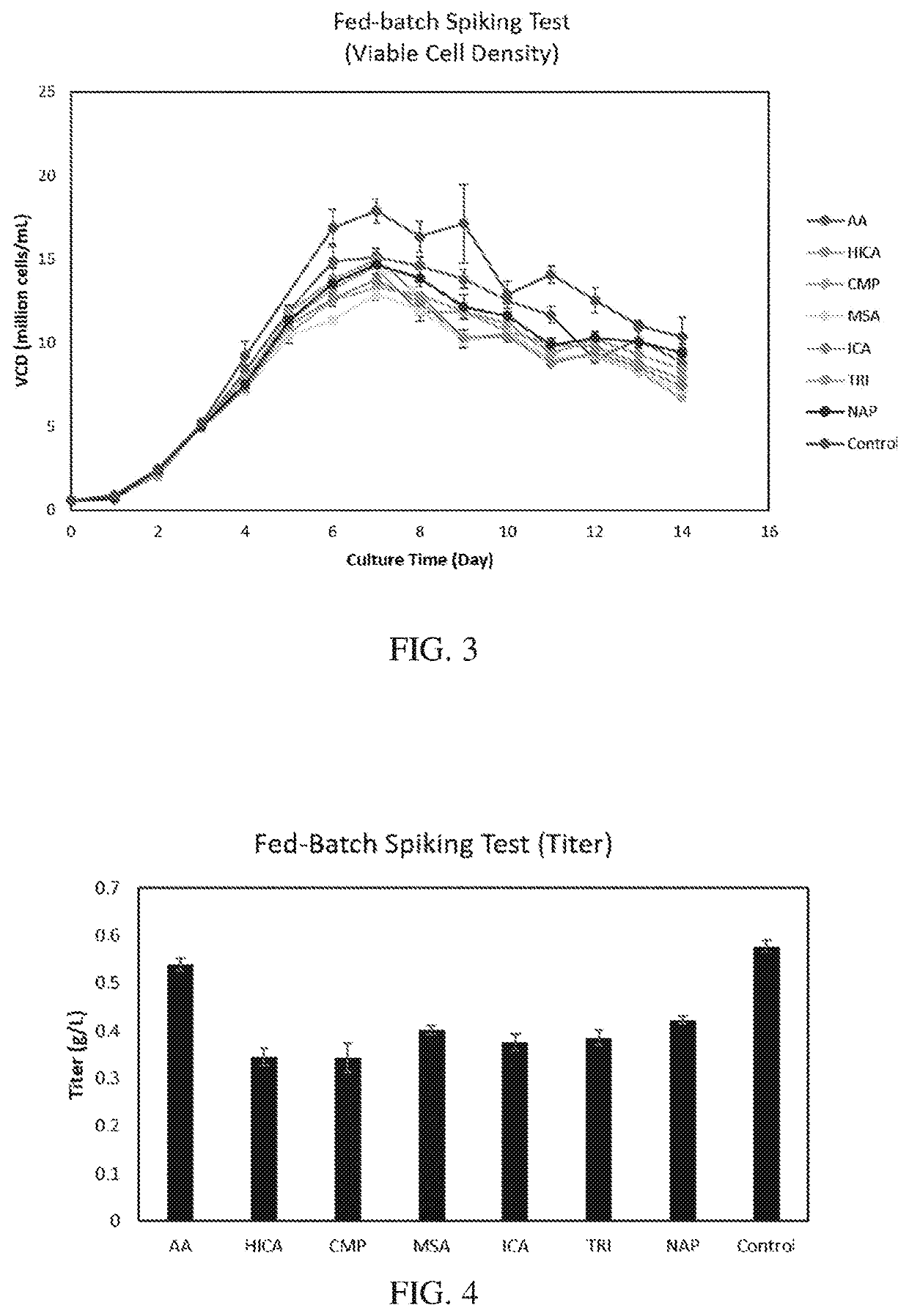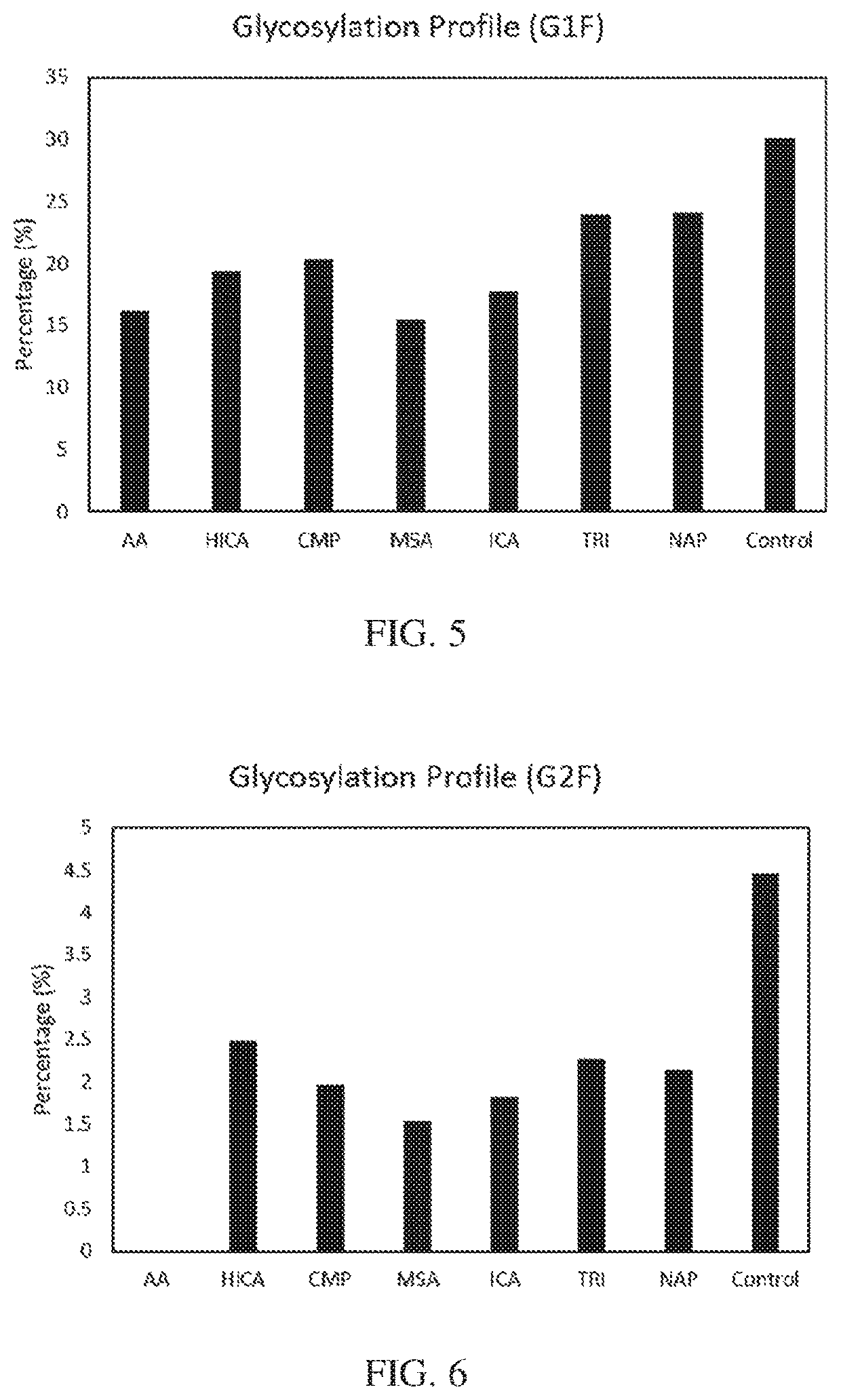Cell culture methods
a cell culture and method technology, applied in the field of cell culture methods, can solve the problems of cho cells, inefficient and poorly regulated metabolism, rate limitation,
- Summary
- Abstract
- Description
- Claims
- Application Information
AI Technical Summary
Benefits of technology
Problems solved by technology
Method used
Image
Examples
example 1
Identification
[0128]HILIC liquid chromatography column Orbitrap™ mass spectroscopy (LC-MS) was used to screen the whole CHO metabolome. 30000 features were analyzed, and more than 1000 features were accumulated throughout the cell culture. The inhibitory impact of the top 20 features were tested analytically and biologically. Table 1 provides the metabolites structurally confirmed by (LC-MS). The end of culture concentration was measured also using the LC-MS with a different method.
TABLE 1Structurally confirmed metabolites with their end of culture supernatantconcentration.Verified MetabolitesMS2Expm / zRTConfirmed6Indole-3-carboxylic acid0.9300Neg160.03932.22.5(ICA)8Methylsuccinic acid (MSA)0.8900131.03393.1113.5910Aconitic acid (AA)0.7100Neg173.00814.551435925Leucinic acid (MCA)0.62Neg131.07032.2664.091Trigonelline (TRI)0.6800Pos138.055012.90.8123N-Acetylputrescinium (NAP)0.9400Pos131.117915.340.1964 Cytidine monophosphate 1; 0.87Pos 324.0591; 18.4511.27(CMP)(Neg)322.04355Guanosin...
example 2
Bioprocesses and Biological Confirmation of Metabolites
[0129]CHO K-1 industrial standard batch process: NIH CHO-K1 cell line is cultured for 6 days, with 6 mM glutamine supplement on the inoculation day. The working volume is 30 mL in 125 mL shake flasks, and the inoculation cell density is 0.5 million cells / mL. The parameters for the shaking incubator are: 125 RPM, and 5% CO2.
[0130]CHO GS industrial standard batch process: CHOZn® cell line is cultured for 6 days. The working volume is 30 mL in 125 mL shake flasks, and the inoculation cell density is 0.5 million cells / mL. The parameters for the shaking incubator are: 125 RPM, and 5% CO2.
[0131]HEK 293 industrial standard batch process: MBL HEK 293 cell line is cultured for 6 days. The working volume is 30 mL in 125 mL shake flasks, and the inoculation cell density is 0.5 million cells / mL, with 6 mM glutamine supplement on the inoculation day. The parameters for the shaking incubator are: 125 RPM, and 5% CO2.
[0132]Cells were exposed t...
example 3
Shows Productivity and Quality Impact of the Metabolites
[0135]IgG titer was measured by HPLC with a Protein A column. Product quality was quantified by the IgG glycan profile, which was measured by HPLC with a Glycan Column.
[0136]All 7 metabolites showed an inhibitory impact on productivity and product quality. HICA, CMP, ICA and TRI showed a strong inhibition on productivity, which is more than a 30% productivity drop compared to the control (FIG. 4). Product quality is a critical parameter for the bioprocess and drug approval, where glycan profile is one of the most important Critical Quality Attributes (CQA). AA, HICA, CMP, MSA, and ICA shown higher impact on GIF formation (FIG. 5), and AA totally inhibit the G2F formation, and all other 6 inhibitors significant impact on G2F formation (FIG. 6). Duplicated spiking experiments shown that the impact on glycan profile is consistent (FIGS. 7, 8, and 9).
Conclusions
[0137]More than 30000 features were captured by the LC-MS metabolomics ...
PUM
| Property | Measurement | Unit |
|---|---|---|
| temperatures | aaaaa | aaaaa |
| temperatures | aaaaa | aaaaa |
| temperatures | aaaaa | aaaaa |
Abstract
Description
Claims
Application Information
 Login to View More
Login to View More - R&D
- Intellectual Property
- Life Sciences
- Materials
- Tech Scout
- Unparalleled Data Quality
- Higher Quality Content
- 60% Fewer Hallucinations
Browse by: Latest US Patents, China's latest patents, Technical Efficacy Thesaurus, Application Domain, Technology Topic, Popular Technical Reports.
© 2025 PatSnap. All rights reserved.Legal|Privacy policy|Modern Slavery Act Transparency Statement|Sitemap|About US| Contact US: help@patsnap.com



